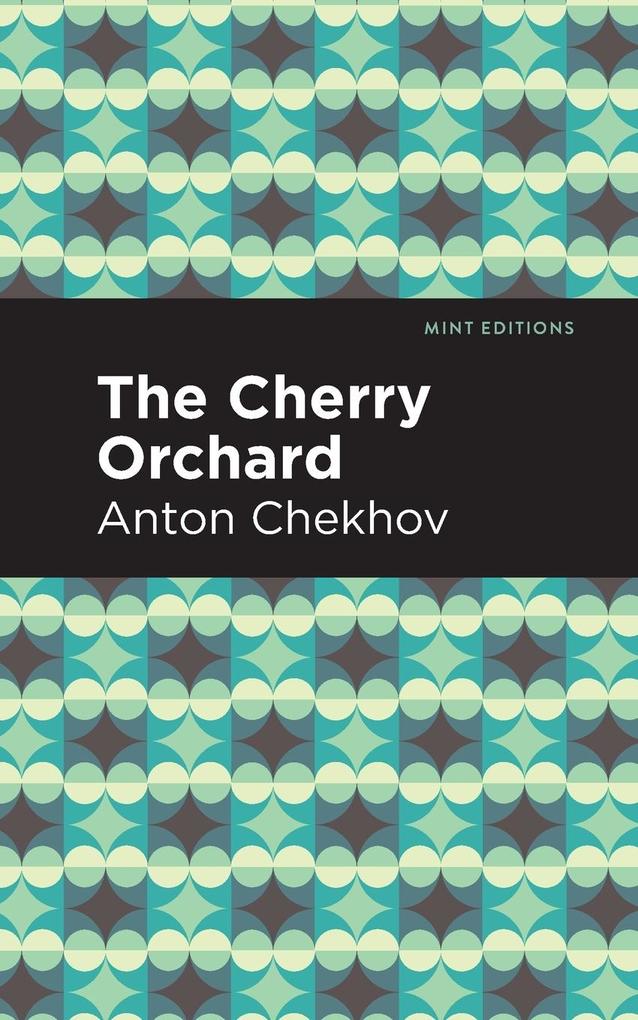
Zustellung: Sa, 30.11. - Mi, 04.12.
Versand in 6 Tagen
VersandkostenfreiBestellen & in Filiale abholen:
The Cherry Orchard (1903) is Russian playwright and short story writer Anton Chekhov's final play. It was first performed at the Moscow Art Theatre in 1904, directed by acclaimed actor Konstantin Stanislavski-who also played the role of Leonid Gayev, the bizarre and uninspired brother of Madame Ranevskaya. It has since become one of twentieth century theater's most important-and most frequently staged-dramatic works.
After five years of living in Paris with her lover-where she fled following the death of her young son-Madame Ranevskaya is brought back to her Russian estate by her daughter Anya. In her absence, Varya, Ranevskaya's adopted daughter, has cared for the estate to the best of her ability, but the family's debts have forced them to put the house and its renowned cherry orchard up for auction. Leonid Gayev, Madame Ranevskaya's brother, hopes to keep the estate, while Yermolai Lopakhin-a wealthy neighbor despite being born a peasant-encourages the family to sell. Although they initially shelter Madame Ranevskaya, she soon discovers the truth and decides-against the family's wishes-to throw a party none of them can afford. As the play reaches its tragic conclusion, the wealthy are forced to acknowledge their circumstances have changed, and the characters who depend on them for employment must do what they can to survive. The Cherry Orchard is a powerful drama that takes an unsparing appraisal of the massive shift in political and social circumstances undergone by Russians in the early twentieth century.
With a beautifully designed cover and professionally typeset manuscript, this edition of Anton Chekhov's The Cherry Orchard is a classic of Russian literature reimagined for modern readers.
After five years of living in Paris with her lover-where she fled following the death of her young son-Madame Ranevskaya is brought back to her Russian estate by her daughter Anya. In her absence, Varya, Ranevskaya's adopted daughter, has cared for the estate to the best of her ability, but the family's debts have forced them to put the house and its renowned cherry orchard up for auction. Leonid Gayev, Madame Ranevskaya's brother, hopes to keep the estate, while Yermolai Lopakhin-a wealthy neighbor despite being born a peasant-encourages the family to sell. Although they initially shelter Madame Ranevskaya, she soon discovers the truth and decides-against the family's wishes-to throw a party none of them can afford. As the play reaches its tragic conclusion, the wealthy are forced to acknowledge their circumstances have changed, and the characters who depend on them for employment must do what they can to survive. The Cherry Orchard is a powerful drama that takes an unsparing appraisal of the massive shift in political and social circumstances undergone by Russians in the early twentieth century.
With a beautifully designed cover and professionally typeset manuscript, this edition of Anton Chekhov's The Cherry Orchard is a classic of Russian literature reimagined for modern readers.
Mehr aus dieser Reihe
Produktdetails
Erscheinungsdatum
01. Dezember 2020
Sprache
englisch
Seitenanzahl
56
Reihe
Mint Editions (Plays)
Autor/Autorin
Anton Chekhov
Verlag/Hersteller
Produktart
kartoniert
Gewicht
72 g
Größe (L/B/H)
203/127/4 mm
Sonstiges
Paperback
ISBN
9781513269146
Entdecken Sie mehr
Bewertungen
0 Bewertungen
Es wurden noch keine Bewertungen abgegeben. Schreiben Sie die erste Bewertung zu "The Cherry Orchard" und helfen Sie damit anderen bei der Kaufentscheidung.


































